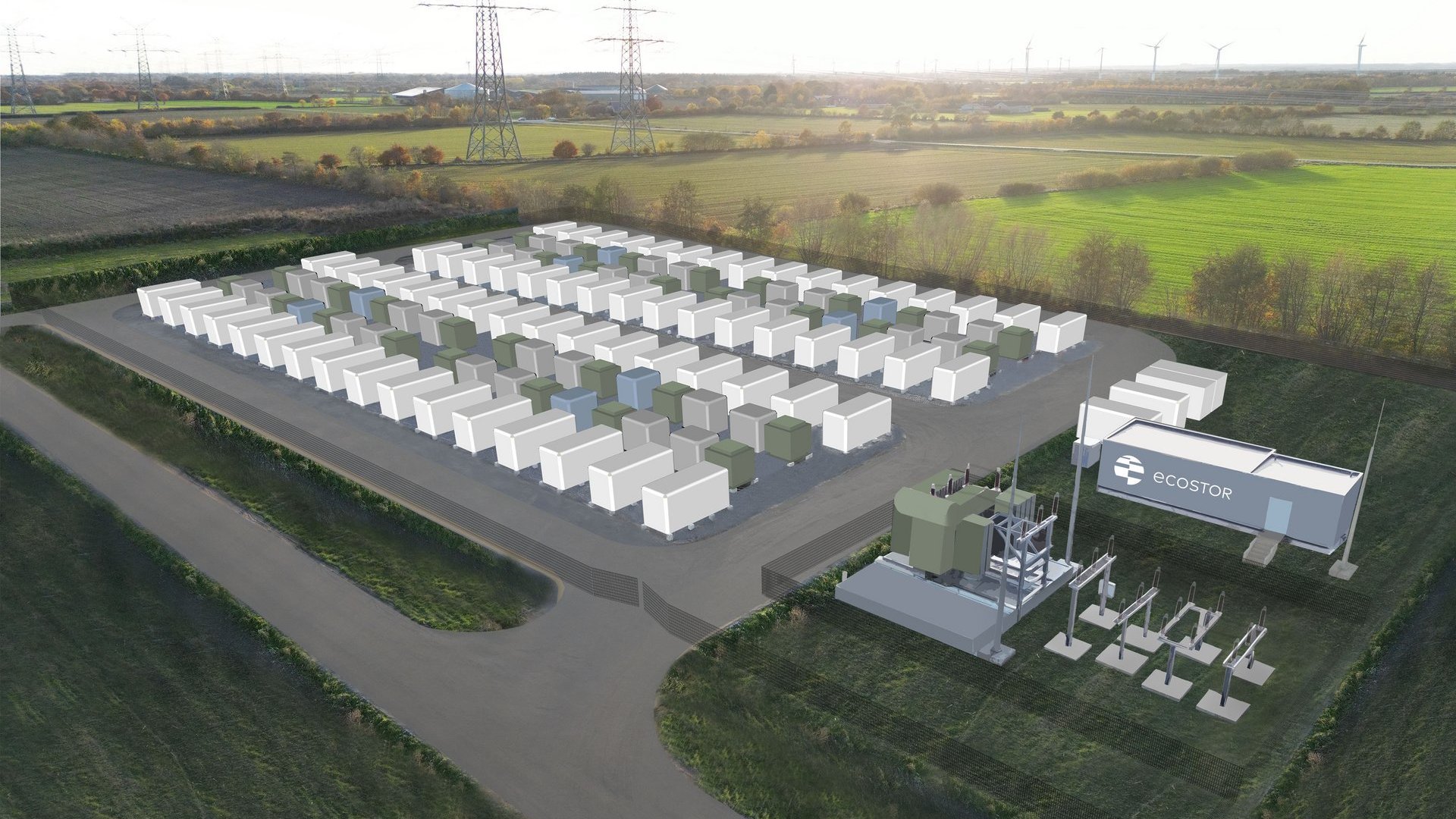Innovative market-based model to accelerate the green energy transition. ECO STOR and Alpiq have signed a pioneering tolling agreement for the Schuby large-scale battery energy storage system ECO POWER TWO. The partnership combines technological excellence with expertise in energy markets and marketing, as well as financial stability, demonstrating how energy transition projects can be realized without government subsidies.
Kirchheim near Munich/Lausanne (Switzerland), November 25, 2025 – ECO STOR GmbH and Alpiq today announced their collaboration on the optimisation of the ECO POWER TWO large-scale battery energy storage system (BESS) in Schuby, Germany. The partnership is an example of a new generation of privately financed energy transition projects that are technologically advanced, economically viable, and independent of government subsidy mechanisms.
By combining ECO STOR's expertise in the development, construction, and operation of large-scale battery energy storage systems with Alpiq's market expertise in energy trading and risk management, “tolling” creates a business model that combines stability as well as sufficient returns and scalability for sustainable energy infrastructure. For this particular agreement Alpiq is supported by energy marketing specialists Enspired and Entelios. Both companies are already working successfully with ECO STOR on another large-scale battery storage project.

Economic strength and risk reduction
At the heart of the tolling collaboration is a contract that guarantees ECO STOR fixed revenues over five years. In return, Alpiq gains exclusive rights to optimise the BESS for grid stability services or to trade electricity in the spot and intraday markets. With a high degree of financing security and predictable revenue structures, this model creates key conditions for ECO STOR's access to long-term debt capital.
“This cooperation allows us to combine our technical know-how and innovative strength with Alpiq's market expertise,” explains Georg Gallmetzer, Managing Director of ECO STOR. “In doing so, we are setting standards for how energy transition projects can be scaled and implemented entirely without government support, but rather through market-based models.”
Alpiq also sees the deal as significant: “We see the ECO STOR deal as another major step forward for Alpiq, in line with our strategic focus on flexibility” says Lukas Gresnigt, Head of International and member of Alpiq’s Executive Board. "Flexible capacity and storage is essential in order to reliably integrate wind and solar power into the energy system. The agreement with ECO STOR allows us to actively support the energy transition and improve grid stability. Accelerating the green energy transition requires both innovation and collaboration – this tolling agreement exemplifies that."
Market-based models as pioneers of the energy transition
The tolling model is an example of how technological innovation, financial stability, and long-term risk management can go hand in hand. It allows the technical responsibility to remain with the operator, while market risk is transferred to an experienced partner. This structure gives investors’ confidence and provides new impetus to the energy market. The cooperation between ECO STOR and Alpiq has created a scalable model that shows how the energy transition can be increasingly driven by market-based mechanisms.
Schuby battery storage facility – a flagship project for technical excellence
The cooperation between Alpiq and ECO STOR relates to the large-scale battery energy storage system in Schuby, Schleswig-Holstein, which has an output of 103.5 MW and a storage capacity of 238 MWh . The BESS is scheduled to start operations in mid-2026. Thanks to an innovative operating concept developed by ECO STOR in coordination with the grid operators TenneT and SH-Netz, the BESS is operated within clearly defined, grid-neutral guidelines and is fully charged and discharged up to twice a day. The project thus provides a clear example of how technological excellence and grid-oriented operating models can contribute jointly to the transformation of the energy system.

